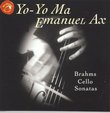| All Artists: Szigetti, Bartok Title: Beethoven, Debussy: Sonatas; Bartok: Rhapsody / Szigeti, Bartok Members Wishing: 0 Total Copies: 0 Label: Vanguard Classics Release Date: 4/8/1993 Genre: Classical Styles: Chamber Music, Historical Periods, Classical (c.1770-1830), Modern, 20th, & 21st Century, Instruments, Strings Number of Discs: 1 SwapaCD Credits: 1 UPC: 723918800820 |
Search - Szigetti, Bartok :: Beethoven, Debussy: Sonatas; Bartok: Rhapsody / Szigeti, Bartok
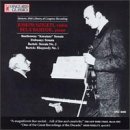 | Szigetti, Bartok Beethoven, Debussy: Sonatas; Bartok: Rhapsody / Szigeti, Bartok Genre: Classical
|
Larger Image |
CD DetailsSimilar CDs
Similarly Requested CDs
|
CD ReviewsOne of the world's great concerts! ronald@cavaye.freeserve.co.uk | London | 04/13/1999 (5 out of 5 stars) "This recital by Szigeti and Bartok was recorded in Washington. It demonstrates two consumate artists at the height of their artistic powers. Every musician - not just violinsts and pianists! - should own this recording. One of the really great concerts of all time. Ronald Cavaye" Historical, invaluable, essential: Bartok at the piano with Discophage | France | 06/12/2007 (5 out of 5 stars) "Imagine having a recording of Mozart playing a Bach Violin and Harpsichord Sonata and one of his own works with his dad Leopold at the fiddle, or Brahms and Joachim playing one of Beethoven's and one of the composer's own Sonatas. Wouldn't it be a dream for the music lover and record collector, an invaluable testimony of how a major composer approaches as interpreter not only his own composition (already a uniquely illuminating circumstance), but also those of earlier composers whose influence upon their own work was seminal? Well: this is exactly what we get with this priceless Szigeti-Bartok recital. Both musicians had had a longstanding artistic and personal relationship, dating back to 1903 when the violinist (11 years younger than the composer) first heard Bartok at the Royal Conservatory in Budapest, and pursued with numerous recitals given together from the mid-1920s on. Bartok arrived in New York on April 11 1940 (that was to be his final destination), and this recital was given two days later, under the auspices of the Elizabeth Sprague Coolidge Festival at the Library of Congress in Washington. It was miraculously preserved on acetate discs. Nobody will expect hi-fi: the sound is small but comes out clear, and there are scratches and surface noise from the acetates, but these sonic considerations count for nought in the face of the artistic and historical significance of this recital, possibly one of the most important recorded documents of 20th century classical music. There had been numerous recordings of Beethoven's and Debussy's Sonata before (including, for the latter, the landmark 1929 Thibaud and Cortot: Debussy, Faure and Franck), there have been innumerable since, and I wouldn't stake my hand that there hasn't been any "better" one before or after, but these are fine representations in their own right, classically molded in Beethoven and open both to the roguish whimsicality and to the sensuality of Debussy's composition (whose movements are not individually cued, regrettably. They start at 4:13 and 8:04). It is even remarkable how well attuned both musicians are to the French composer's unique moods and style. Bartok proves a master pianist, and Szigeti is free of the deterioration in tonal production that was to mar his later years. Other than a glaring finger slip in the finale of Debussy's Sonata (at 9:04), it is only in one of the thorniest passages of Bartok's Second Sonata (4:32 into the 2nd movement) that his technique seem strained and that his tone takes on a wiry edge, especially in the ensuing double stops, but this is entirely justifiable by the live conditions of the recording and anyway not entirely out of character here. It is also amply compensated by the sense of the occasion, the give-and-take, the precision of the reading, even in the complex and ever changing meters and tempos of Bartok's Sonata. I am not aware of any prior recording of Bartok's compositions. In the Rhapsody and even more the Sonata (composed 17 years before this recital), it is again quite unique to have the composer himself establishing an "authentic" performing model. In the Sonata, more than any subsequent version, Szigeti and Bartok are alive to the composition's savagery, but also to its sense of humor: try the slightly limping gait, not explicitly prescribed by Bartok-the-composer but adopted by Bartok-the-interpreter, of the "comodo" section in the second movement starting at 3:38. At times you may have the feeling that tempo is a little cautious (as at the "piu vivo" at 1:24 into the 2nd movement), and you may easily attribute it to the live circumstances of the recording and the difficulty of staying together through the composer's ever changing meters. But then you only need to go to the scurrying "vivo" passage at 6:33 to understand that this is no cautionary tale, but an voluntary interpretive choice. Other than the few rough spots mentioned above, Szigeti plays with admirable ease, and wonderful coloristic effects when the composer calls for them, as in the "col legno sulla tastiera" at 8:13 in the 2nd movement. No technical hurdle is too high for Bartok the pianist. His playing is powerful, with a fine control over dynamics and complex rhythms, and at times a little more pedalling (and consequently a little less snap) than I would have imagined the score's staccato markings invited. Subsequent versions, which started to trickle in the early fifties with the advent of the LP, have documented other interpretive approaches to the Sonata, more spacious and brooding, equally valid in their own right: it started with the recording of Juilliard-Quartet founder Robert Mann with pianist Leonid Hambro on Bartok Records, the label established by the composer's own son (now reissued on CD, available direct from Bartokrecords), and led to Gidon Kremer's second recording from 1997 on Teldec with Oleg Maisenberg: Enescu: Impressions d'Enfance; Schulhoff, Bartok: Violin Sonatas). Some, more animated in character, more or less followed the lead established by the composer, as Isaac Stern's mid-sixties reading with Alexander Zakin (Sony: Bartók: Violin Sonatas Nos. 1 & 2; Webern: 4 Pieces, Op. 7). But this first one has unique authority of the composer's presence and offers a fascinating insight into the interpretive standing of Bartok the interpreter and chamber musician. It has been reissued by Vanguard as A Sonata Recital by Joseph Szigeti & Béla Bartók and can be found for cheap, so don't let yourself be ripped off by the internet vultures. " The best Kreutzer Sonata ever recorded ! Hiram Gomez Pardo | Valencia, Venezuela | 11/05/2004 (5 out of 5 stars) "This Sonata is the crown jewel of a CD filled of musical treasures .
I have not ever heard such wildness, eloquency , nuance, commitment and dramatic mood in a previous Kreutzer ; and believe me , I have got the Casadesus - Francescati , Menuhin Kempff , and Szigetti - Arrau . The approach given for both monster musicians is out of this world . Radiant , magnificent and sublime . A historical and monumental recording." |

 Track Listings (10) - Disc #1
Track Listings (10) - Disc #1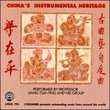

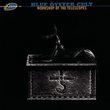
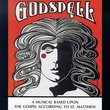
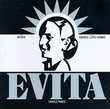
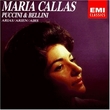
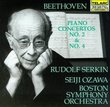
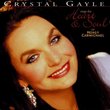


![Bizet: Carmen / Jessye Norman, Freni, Shicoff, Estes, Le Roux; Ozawa [Highlights]](https://nationalbookswap.com/cd//m/87/0887/6020887.jpg)
